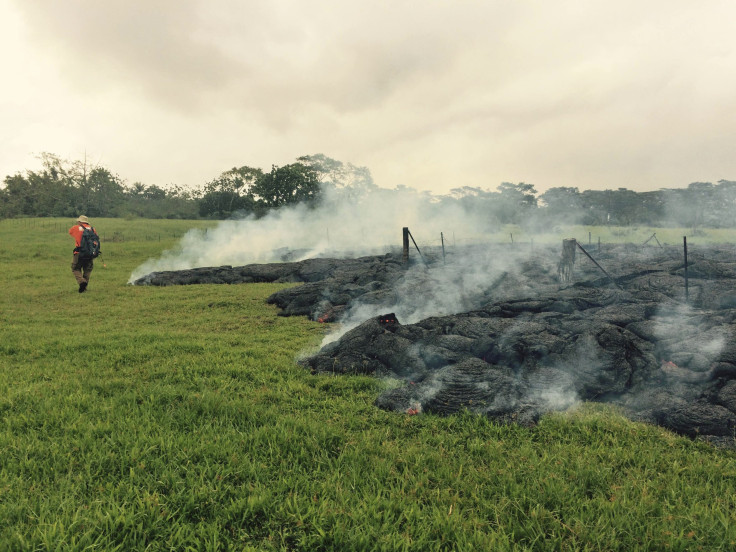Hawaii Kilauea Volcano Update: Residents Of Pahoa Village Evacuate As Lava Hits First Houses [PHOTOS]

Residents of a village on Hawaii’s Big Island have been evacuated as lava from the Kilauea volcano reached the first houses in its way after advancing more than 250 yards over the weekend, BBC reported Wednesday. The slow-moving lava has been reportedly advancing for weeks toward Pahoa, about 17 miles south of Hilo, the largest city on the island.
The molten lava from Kilauea is hotter than 1,650 degrees Fahrenheit (900 degrees Celsius), media reports said, citing the U.S. Geological Survey. At least 50 homes are in the projected path of the lava, which was moving at a speed of around 10 yards to 15 yards an hour. Civil defense officials in Hawaii County said, according to The Associated Press, that the lava was about 370 yards from the main road in Pahoa town late on Tuesday. The lava had also reportedly burned down an empty shed on Tuesday.
"You can only imagine the frustration as well as... despair they're going through," Hawaii County Civil Defense Director Darryl Oliveira said about the residents of Pahoa, according to BBC. Oliveira also reportedly said that authorities were set to go door-to-door Tuesday night to urge people to evacuate the town. Pahoa is home to about 1,000 people.
"People have their life savings in their properties here. They face losing it all," businessman Mike Metcalf told Reuters.
Kilauea, one of the world’s most active volcanoes, has been erupting continuously since 1983, and began bubbling out lava on June 27.
Two roads to Pahoa have been closed and a Buddhist cemetery also has been affected by the lava. According to reports, workers were installing taller poles to keep power lines away from the molten lava’s heat.
The lava’s movement over the last 36 hours has been described as "periods of rapid advancement and slow motion” by scientists of the Hawaiian Volcano Observatory, the Los Angeles Times reported.
Some residents reportedly also requested authorities to allow them to see the lava burn down their houses as watching it was a way to cope with the loss.
"Entire families have been raised in these homes. It's a very difficult thing for them to see this happening, and if we can accommodate them in any way for the grieving process, we will want to do that if it's safe,” Oliveira said, according to Reuters.
© Copyright IBTimes 2024. All rights reserved.





















